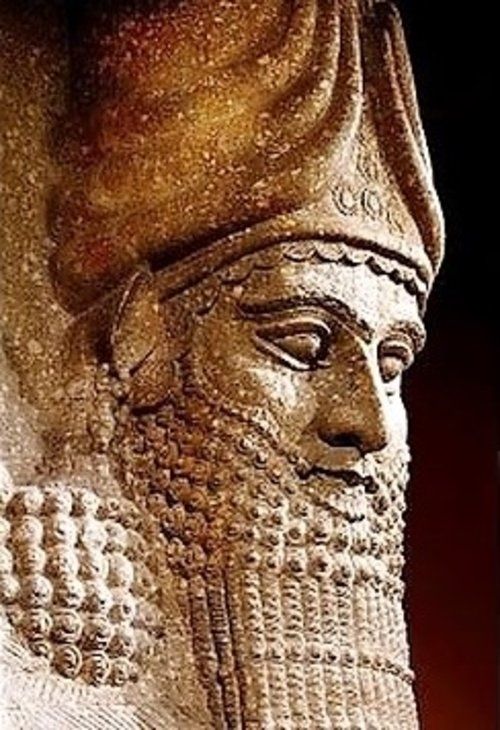Last month, we began to look at the sufficiency of Scripture. We continue by first considering God’s design in providing the written Word for his people. In doing so, it will be helpful to relate this provision to both the wisdom and the love of God.
The wisdom of God
It is a basic element of the biblical revelation that God is all wise and the originator of all true wisdom. No one is wiser than God! In the Holy Scriptures, therefore, we have what the all-wise and all-knowing God perceived to be necessary for the life of his people, both in their relationship to him and their conduct in society.
If any important truth were omitted or inadequately revealed, God’s wisdom would be deficient, and he would not be perfect in all his ways. Any attack made against the sufficiency of Holy Scripture must, therefore, be recognised as an attack on the wisdom of God, its ultimate author. Though this wisdom is rejected by the wise of this world, it has nevertheless provided fully for our salvation in his Son, Jesus Christ.
Surely, with the apostle Paul in Romans 11:33-34, the Christian reverently owns, ‘Oh, the depth of the riches of the wisdom and the knowledge of God! “Who has known the mind of the Lord? Or who has been his counsellor?”’
The love of God
In 1 John 4:8,16 we have the most precious affirmation, ‘God is love’. In simplicity and profundity, this sums up so much of the biblical revelation of God.

It was because the Lord loved Israel that he redeemed them from slavery in Egypt and provided them with his Word to live by, for their highest good. That deliverance pictures the way that every Christian has been brought into the experience of God’s love, through the Father’s provision of his Son to be the propitiation for our sins, that we might be saved and live through him.
Surely, therefore, no one can doubt God’s full commitment in love to his people. The infallible Holy Scriptures have been given to us in God’s purposes, and were lovingly designed to bring men and women first to salvation and then to maturity as Christian believers.
The Saviour’s design in his atoning death was to bring its beneficiaries to a clear and true knowledge of himself and a growing conformity to his likeness. The Scripture was given as the sufficient outward means and instrument to achieve this. If it were not sufficient, then his loving purpose could not be realised.
Adding and subtracting
The sufficiency of God’s Word is attacked by two contrary tendencies, which are exposed and condemned in the Scripture. God’s solemn warning against these tendencies is found in Deuteronomy 4:2: ‘Do not add to what I command you, and do not subtract from it’.
In the book of Revelation, the Lord Jesus utters a further solemn warning against those who supplement Scripture with their own ideas, or subtract from Scripture some of God’s words. ‘I warn everyone who hears the words of the prophecy of this book. If anyone adds anything to them, God will add to him the plagues written in this book. And if anyone takes words away from this book of prophecy, God will take away from him his share in the tree of life, and in the holy city’ (22:18-19).

The serious fault of adding to the Scripture manifests itself in two distinct ways, as follows.
The claims of tradition
Firstly, men add to Scripture by their traditions. Our Lord Jesus confronted this fault directly when he accused the Pharisees of breaking God’s commandment: ‘You nullify the Word of God’, he said, ‘for the sake of your tradition’ (Matthew 15:6).
The verb ‘nullify’ carries the sense of taking away the authority of God’s Word. During the previous centuries, eminent teachers had provided commentaries on Scripture and drawn up specific applications of its general commands. These ‘traditions of the elders’ had begun as an application of Scripture, had become a supplement to Scripture, and eventually had almost replaced Scripture as the authoritative guide to Jewish religious belief and practice.
In the same way, during the Middle Ages the Roman and Orthodox Churches had accumulated a body of ‘Tradition’ which was accorded equal authority with the Bible. This became so serious that biblical Christianity was obscured. The Romish system, no longer a true church of God, lay under the rule of Antichrist. The character of the mediaeval Church of Rome was revealed in their ruthless opposition to any who attempted to reform it in submission to God’s Word.
The reformation of the church necessarily involved the rejection of all those traditions which, contrary to Scripture, had become intertwined with its doctrines and practices.
Today, we still need to examine, in the light of Scripture, things that have become traditional in the belief and practice of our churches. We must be ‘always reforming’. We must ask, ‘Does the Word of God authorise this?’ and ‘Does the Word of God tolerate that?’
The claims to ‘fresh revelation’
This was a problem faced by the Lord’s chosen nation in Old Testament times, and for which God had prepared them in Deuteronomy 18:20-22. There were prophets who claimed divine authority for their own utterances, without having received those messages from God.

The Lord gives a solemn warning: ‘Woe to the foolish prophets who have followed their own spirit and have seen nothing. They say, “the Lord declares” when the Lord has not sent them’ (Ezekiel 13:2-3).
One of the problems faced by the Reformers lay in this very area. Self-important ‘spiritual men’ claimed authority for their own teachings, even when they were not in accord with the Holy Scriptures. Calvin wrote of ‘those who set aside the Word of God and fasten upon any dreaming notion which may have casually sprung up in their minds’. The false teachers referred to in Jude were also ‘dreamers’.
This problem is still with us, for many today falsely claim the inspiration of the Spirit, and expect others to receive their teaching as Spirit-revealed.
However, all the children of God are taught by God and acknowledge no other revelations of the Spirit than those given in the Word of God. Calvin wrote: ‘The Holy Spirit so cleaves to his own truth, as he has expressed it in Scripture, that he then only exerts and puts forth his strength when the Word is received with due honour and reverence’ (Institutes, Book 1, 10:3).
Subtracting from Scripture
For more than a century and a half there has been a growing tendency among so-called ‘Christian scholars’ to reduce the content of Scripture in a variety of ways. They reject Bible passages, large or small, which relate to science, history and even doctrine. They dismiss them as simply untrue, or unworthy of their own idea of God.
There are also more subtle aspects to these reductions of God’s Word, and it is important to consider some that afflict the church today. We are guided here by the affirmation of the Lord Jesus, that even the ‘jots’ and ‘tittles’ forming Hebrew characters in Old Testament Scripture are part of its infallible revelation (Matthew 5:17).
Science and history

Firstly, some refuse to accept the truth and reliability of certain passages of Scripture, especially those that concern important scientific and historical facts, such as God’s record of creation, the uniqueness of man as made in the image of God, and the Noahic Flood.
Sometimes there have been well-meaning but inconsistent attempts to buttress the biblical record by archaeological and other scientific evidence, as if God’s Word needed the support of human wisdom.
It is by faith that the Christian understands that the whole vast universe was created by God (Hebrews 11:2). We believe that God is a reliable witness to his own activity (there were no others!).
Similarly, he is well able to reveal his own purposes in history, in the outworking of his wrath on sinners and his covenant mercy to his people.

God’s Word is not, of course, a textbook of scientific and historical information, but nowhere is its testimony false. It shows some contempt of God even to suggest it.
Interpretation
Another error, which emerges in the realm of biblical interpretation, is the refusal to recognise the full relevance of Old Testament revelation to our understanding of the New. The heretic Marcion rejected the Old Testament entirely, and those who tend to follow him today effectively cut out from Scripture much of the divinely given preparation for the life of the Christian Church.
We must remember that Christianity never existed without the inscripturated Word of God, and the New Testament has not replaced the Old Testament, but has supplemented it and brought it to its perfect fulfilment. For example, although the New Covenant abrogates the Mosaic covenant (Hebrews 8:6,13), it is nevertheless the fulfilment of the Abrahamic covenant.
Christians are the ‘seed of Abraham’ and heirs to the promises which God made to him (Galatians 3:29). This is further demonstrated and clarified in Hebrews 6:17-20, where our hope of our eternal inheritance is grounded upon the covenant promise and the oath God swore to Abraham, as recorded in Genesis 22:17.
Let us then have courage to believe with the psalmist: ‘For ever, O Lord, your word is settled in heaven. Your faithfulness endures to all generations’ (Psalm 119:89-90). And let us declare this truth to our own.




